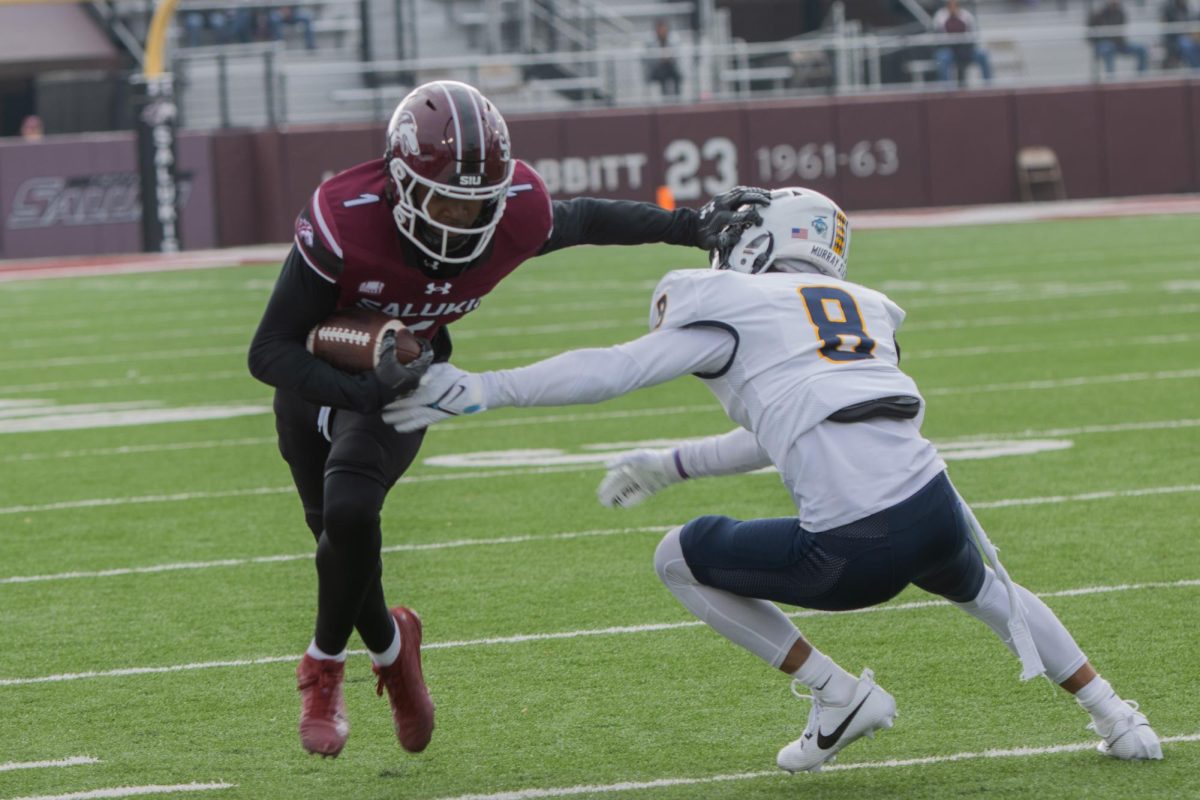Students and staff share thoughts on campus improvements
January 24, 2012
Although many campus changes happen during summer months, most of the planning stages begin much earlier in the spring or even fall semester.
Chancellor Rita Cheng said there are planned improvement projects for the campus in the process.
There will be carpet replacements in Faner, as well as new paint jobs and window blinds in all the offices and classrooms. The French Auditorium in Lindegren Hall will undergo a remodeling project with the removal of asbestos, and the remodeling of the Agriculture Building that began last summer will likely be finished this summer, she said. The Communications Building will also get a new $2 million roof replacement, Cheng said, as soon as the weather allows.
Advertisement
Phil Gatton, director of plant and service operations, said the roof replacement will begin around April 1, along with some work being done to the Quigley and Engineering Building roofs.
“I know people don’t realize how important (the roofs) are, but it’s a huge issue with us on campus,” Gatton said. “Problems with the roof in a building like the Communications Building affects equipment.”
He said the new roofs should last between 20 and 25 years.
Several improvements cannot be made until the university receives its state funding, though, such as the transportation of books back to the Morris Library, Cheng said.
“We’re also waiting for money to be released from the state for repairs to the steam tunnel and electrical feed to campus,” Cheng said. “It’s been planned, but there’s no money yet.”
When Morris Library was being built, the books were transferred to the McLafferty Annex and have yet to be moved back.
She said the new Student Services Building is also under construction. Peter Gitau, associate vice chancellor and dean of students, said a lot of planning went into the building before construction began, including visits to other universities for design ideas.
Advertisement*
“The idea is, we want to have a building where we can serve students at one spot where they are not going to be subjected to the shuffle required at Woody,” he said.
Gitau described the ‘Woody Shuffle’ as a student going from room to room and from floor to floor in Woody Hall, which can be confusing and frustrating.
“So the idea is to have a building that is strategically located next to the Student Center, which would be the head of campus life where you would have a number of key offices and departments that provide critical student support services,” he said.
In the new Student Services Building, students will be able to work with admissions, get financial aid processed, bursar bills paid, secure housing, get career counseling and meet with the dean of students, he said.
Gatton said demolition of the parking garage should be complete by March and the construction of the Student Services Building will begin directly after.
Besides the student services building, University College is also making improvements for new students.
Mark Amos, associate provost and dean of University College, said there will be a campus-wide required core course in the fall. He said it will be divided into two types of sections—UCOL101A and UCOL101U. Section 101A of the class, Foundations of Inquiry, is for undecided students, mostly freshman, while section 101U is for a different undecided population on campus, Amos said.
“We’re trying to make sure that we have enough material on the web to make (teachers) comfortable and experts in those activities to teach the class,” he said.
There’s also a pilot non-credit course beginning next semester, Amos said, to help students on academic probation meet the satisfactory academic standards. Lisa Peden, director of learning support services, is in charge of the new class, which will be a four-credit course next spring. She said interested students will take a Learning and Studies Skills Inventory test to see what their strengths and weaknesses are before being assigned to an academic coach. The academic coach will help the student, Peden said, with organization, studying materials, paper preparation, note-taking skills and listening skills.
“It’s a pretty intensive program and the student needs to have the commitment to not only participate in the study sessions but be willing to say, ‘There are things I need to do differently,’” she said.
Learning Support Services will provide that support, but Peden said the student must do the legwork to get the good grades.
Amos said there will be more online services in the career services department, too.
Keri Young, director of career services, said as of the beginning of the semester, students can now do a mock interview online called InterviewStream. The program allows students to get feedback before going into the offices for an in-person mock interview. She said the interviews can be tailored to the student’s academic college and major. With InterviewStream, students can get interview tips from professionals, select interview questions to practice and email the completed interviews to professors, employers and career counselors.
Professional staff and graduate assistants in Career Services will also be assigned to specific colleges this semester.
“It’s so the student can rest assured … someone will meet their individual needs and not be a one-stop shop with the same cookie-cutter answer about a resume,” Young said.
Cheng said because students are in classes, most of the planned changes to buildings and additional required courses will take place during the summer.
Advertisement








